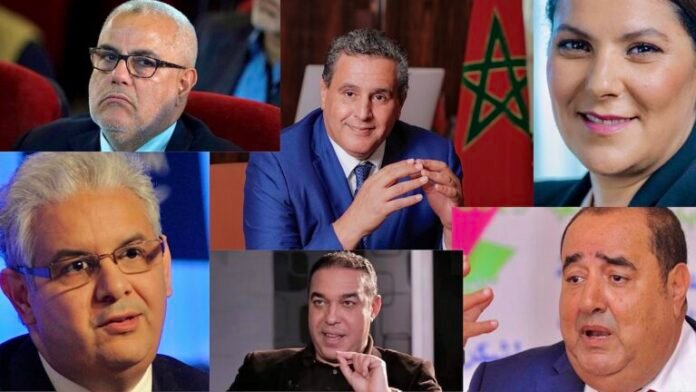For the first time in Moroccan political history, we observe an almost unprecedented phenomenon: the lack of significant disagreement between the ruling majority and the opposition regarding the naming of the upcoming government, even though it is still in the making. This situation, as noted by journalist Hafid Zahri, raises multiple questions about the nature and depth of this political consensus.
The “World Cup Government”: just a facade?
Public discourse today focuses on a government dubbed the “World Cup government,” referring to Morocco hosting the FIFA World Cup. However, this fixation on the sporting aspect conceals much deeper issues. Some seek to divert attention from the real challenges facing the country. Is it enough for the government to don the sports mantle to overshadow expectations on development and social justice? Can this government truly address the challenges of the “World Cup of Development,” “advanced regionalization,” and “social protection” with equal seriousness?
The real challenges of the “World Cup of Development”
Zahri emphasizes the necessity for the next government to:
-
Reduce territorial disparities between rural and urban areas.
-
Implement advanced regionalization by empowering regions to fully perform their developmental roles.
-
Ensure social protection and accessible healthcare for all citizens.
-
Combat unemployment by creating stable jobs that preserve citizens’ dignity.
These issues are not peripheral but are essential for Morocco’s fate in the coming decade.
Foreign programs or national projects?
The author criticizes certain political parties for relying on programs designed by foreign consulting firms, often disconnected from Moroccan realities. Are we witnessing a political spectacle where competition is limited to who has the best imported plan, or a genuine debate based on a deep understanding of the country’s needs? Who bears the responsibility for building realistic, applicable national programs?
2026 Elections: a possible turning point?
There appears to be a high-level political will to ensure transparent elections free from financial and administrative interference. If realized, this vote will be a true turning point, possibly bringing surprises through the emergence of new competencies and leaders. But will this will be enough to overcome historical challenges? Will citizens participate fully and consciously in this crucial milestone?
Conclusion
Hafid Zahri’s article goes beyond mere reporting or expressing opinion. It is a clear call for deep reflection on Morocco’s political and social future. The “World Cup government” is not just about football; it is a real test of Morocco’s ability to achieve inclusive development, social justice, and genuine democratization.
Political actors must take these challenges seriously, leave behind appearances and hollow rhetoric, because the Moroccan people deserve a government capable of turning their hopes into tangible reality.


